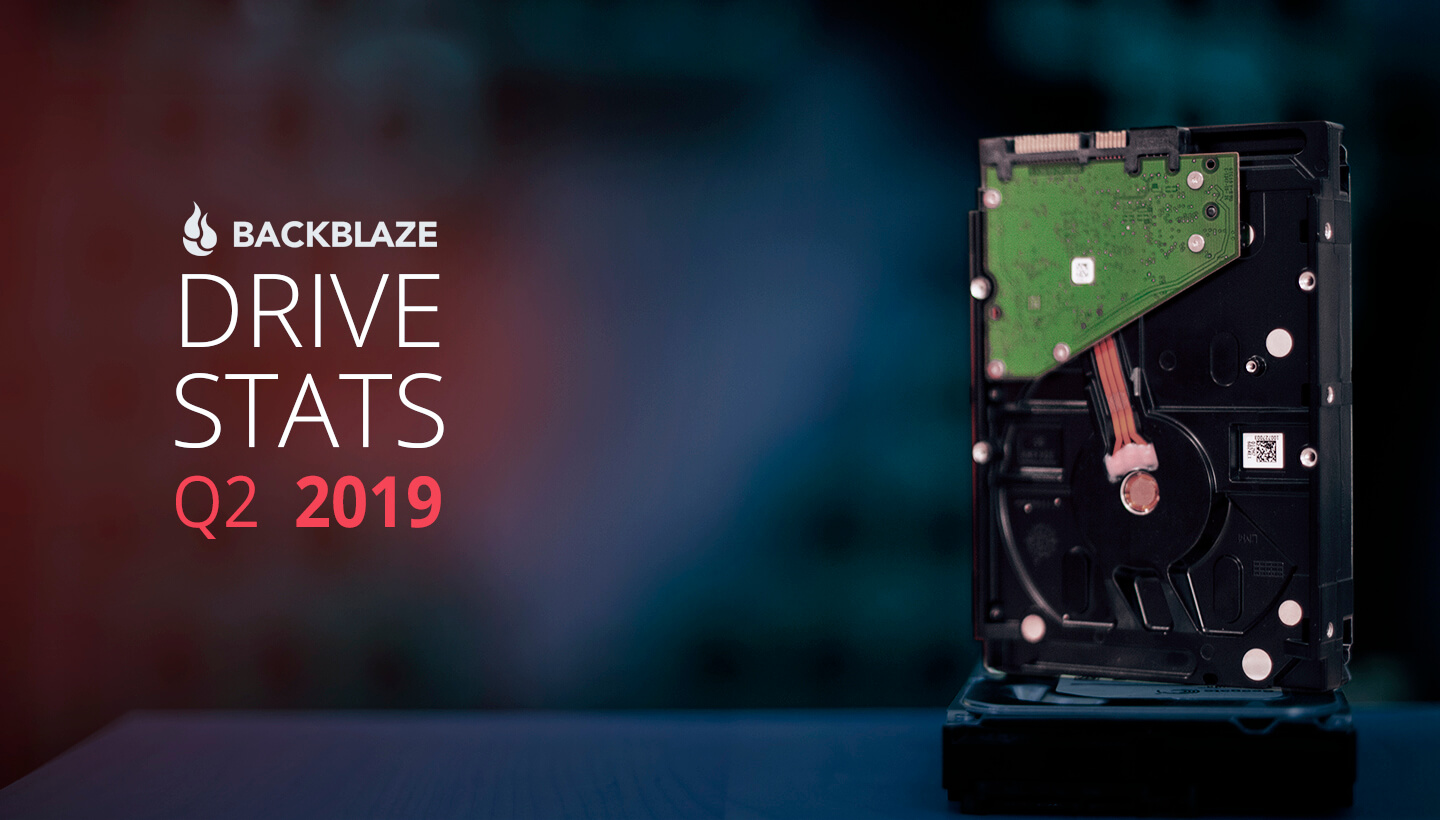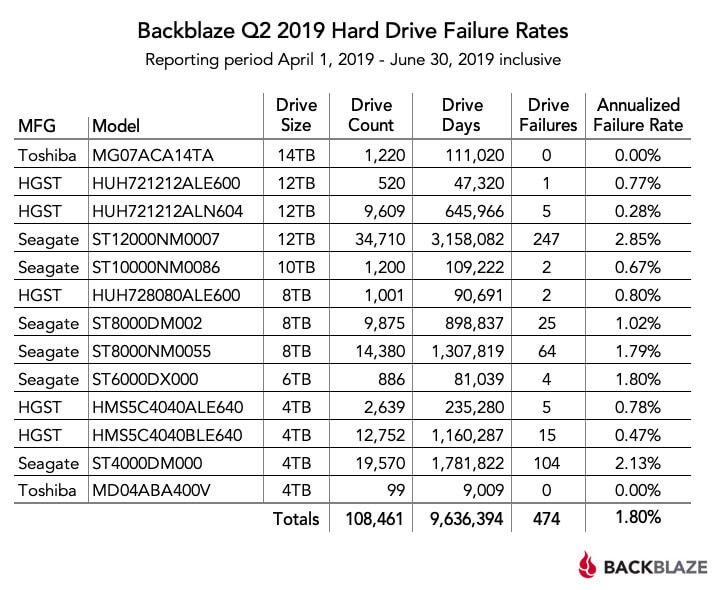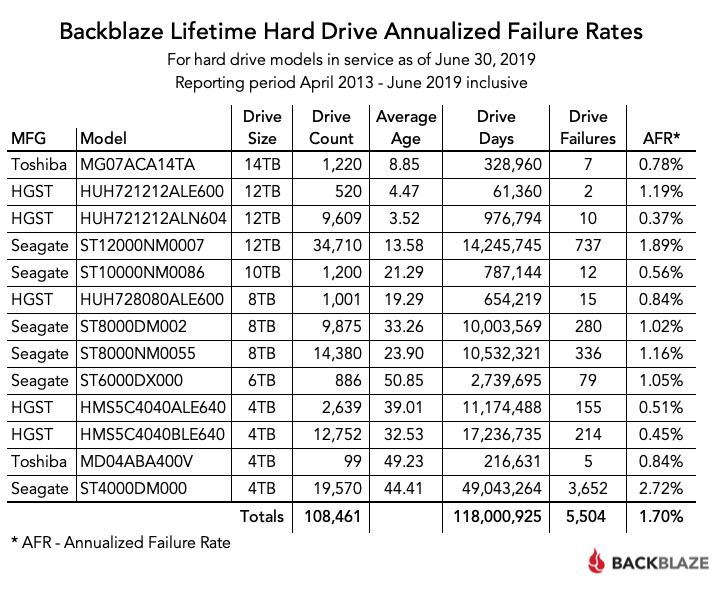In brief: In its latest quarterly HDD reliability stats for 2019, cloud storage provider Backblaze has released figures that seem to continue the trend of bigger drives being better. With a total of 108,461 drives tested, 474 reported failure across different storage capacities. Out of these failed disks, a staggering 94 percent (446 models) belong to Seagate, with its 12TB ST12000NM0007 model coming on top with 247 drive failures alone.

Given that all the hard drives currently in use are subject to deterioration over time/usage and will fail one day, it's a good idea to keep an eye on which manufacturer is putting out the most reliable models on the market for when it's time to upgrade.
For the second quarter of 2019, Backblaze has published its latest HDD stats and it looks like Seagate drives suffered from the most failures. Admittedly, the manufacturer does have the most samples, 6 out of 13 models tested in total (also more quantity for each capacity in general) and the longest drive days; more than 3 million drive days just for its 12TB model.

With all drives currently in use at Backblaze's data centers, the company highlighted the impressive performance of Toshiba drives but also noted that it didn't have a large enough sample quantity for the 4TB models to make for a reliable statistic. Nonetheless, both the 14TB and 4TB Toshiba models in use reported zero failures in this quarter.
Backblaze also notes that the 14TB model "got off to a bit of a rocky start, with six failures in the first three months of being deployed. Since then, there has been only one additional failure, with no failures reported in Q2 2019."
"There were 199 drives (108,660 minus 108,461) that were not included in the list above because they were used as testing drives or we did not have at least 60 of a given drive model. We now use 60 drives of the same model as the minimum number when we report quarterly, yearly, and lifetime drive statistics as there are 60 drives in all newly deployed Storage Pods — older Storage Pod models had a minimum of 45," the company said in its blog post.
For this quarter, Backblaze also bid farewell to the 6TB models by Western Digital that had an average age of 50 months and it added more than 4,700 HGST branded (Western Digital owned) disks of 12TB capacity to its data centers.

In terms of lifetime performance (spanning six years of testing), the 12TB HGST comes out as the least failing disk with a 0.37 percent annualized failure rate and Seagate's 4TB model had the highest failure rate at 2.72 percent.
Backblaze has also provided a web page for users who wish to view the complete data set used to create this information.
https://www.techspot.com/news/81353-backblaze-publishes-hdd-reliability-stats-q2-2019.html